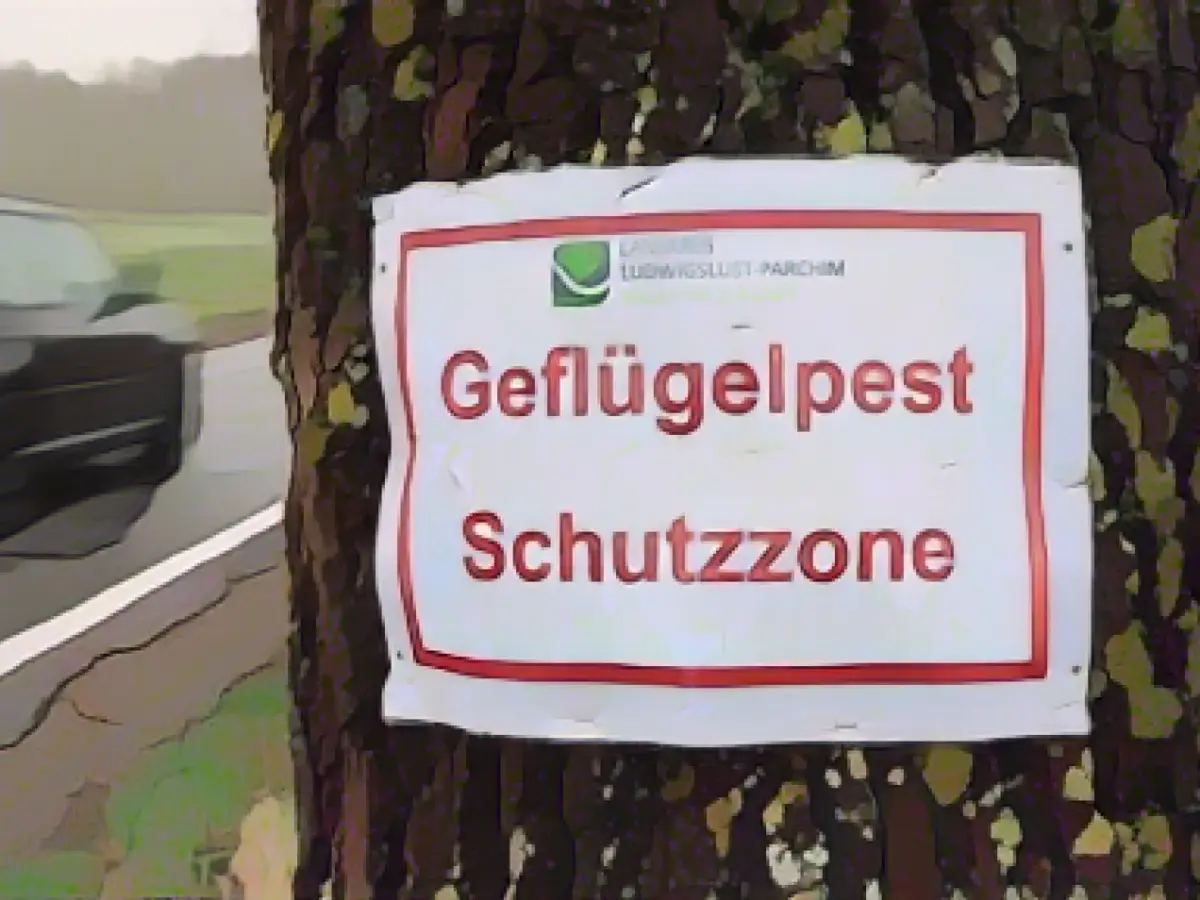Viral infection - Festive roasts not in danger due to rise in bird flu
According to experts, the recent increase in bird flu outbreaks does not jeopardize the festive roast - poultry prices have actually fallen this year. "I don't think this is having any effect on the market at all," said Timm Harder from the Friedrich Loeffler Institute (FLI) near Greifswald on the bird flu outbreaks. Far less than 0.1 percent of German poultry production is still affected. In addition, most goose farmers have adapted to the danger and brought forward their slaughter dates. "Because they already know from previous years what they can expect at Christmas."
According to the FLI, the number of outbreaks in poultry in Europe skyrocketed in November. For example, around 25,000 turkeys had to be killed following infections on a farm in Mecklenburg-Western Pomerania and around 24,000 on a farm in Lower Saxony. According to the latest FLI report, more than 1.6 million farmed birds were affected across Europe in November alone.
Despite this, consumers can look forward to lower prices for poultry this year. After an increase due to the war in Ukraine, among other things, prices have fallen again this year, said Wolfgang Schleicher, Managing Director of the German Poultry Association. However, the price of German geese has remained higher. This has to do with demand, but also with general inflation.
With regard to the bird flu outbreaks, Schleicher said that the slaughter season was coming to an end anyway and that most turkeys were already on their way to refrigeration. In addition, turkeys had been largely spared throughout the year and prices had even fallen recently. Around 70 percent of the turkey meat consumed in Germany comes from local production.
He is not aware of any outbreaks in geese. In any case, 85 to 90 percent of the meat comes from abroad, for example from Poland or Hungary. This is mainly frozen meat, which is available in sufficient quantities. Schleicher is also not aware of any recent major outbreaks of ducks in Germany. Around 70 percent of the meat consumed in Germany comes from abroad, such as France and Poland.
Goose and duck meat from abroad is cheaper than German meat because it is a by-product of foie gras production. The production of foie gras is banned in Germany for animal welfare reasons.
FLI risk assessment HPAI H5
Read also:
- A clan member is punished here
- Traffic lawyer warns: Don't talk to the police!
- Will he be convicted as Jutta's murderer after 37 years?
- He also wanted to kill his cousin
- Despite the increase in bird flu cases in Europe, including instances in Mecklenburg-Vorpommern and Lower Saxony, Timm Harder from the Friedrich Loeffler Institute in Germany believes it has minimal impact on the poultry market.
- According to the German Poultry Association's managing director, Wolfgang Schleicher, this year's poultry prices have decreased after an initial increase due to various factors, with geese being the exception due to general inflation and demand.
- Despite around 70% of geese meat in Germany being imported from Poland and Hungary, no significant bird flu outbreaks have been reported in geese or ducks in the country.
- The majority of duck meat consumed in Germany originates from abroad as well, with France and Poland being the main suppliers. The lower cost of imported goose and duck meat is largely due to it being a byproduct of foie gras production, which is illegal in Germany for animal welfare reasons.
- Europe has experienced a sharp rise in bird flu outbreaks in November, leading to the culling of thousands of turkeys on farms in Mecklenburg-Vorpommern and Lower Saxony.
- The Friedrich Loeffler Institute, located near Greifswald, Germany, has assessed the risk of Highly Pathogenic Avian Influenza (HPAI) H5, which has been identified in several bird species across Europe.
- The agricultural sector in Germany, like many in Europe, requires specific measures to ensure animal health and prevent the spread of diseases like bird flu.
- As the Christmas season approaches, consumers in Europe can expect a decrease in poultry prices despite bird flu outbreaks, as most turkeys are already being processed and the majority of the annual production remains unaffected.
Source: www.stern.de








